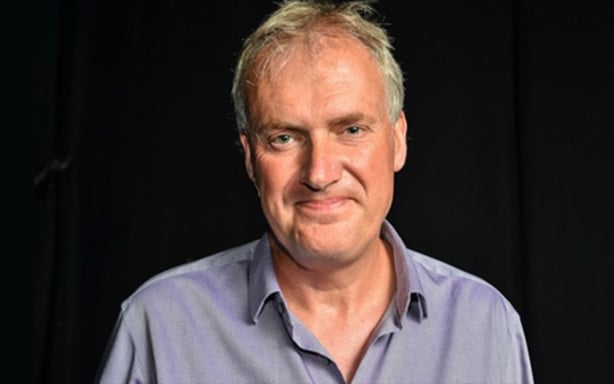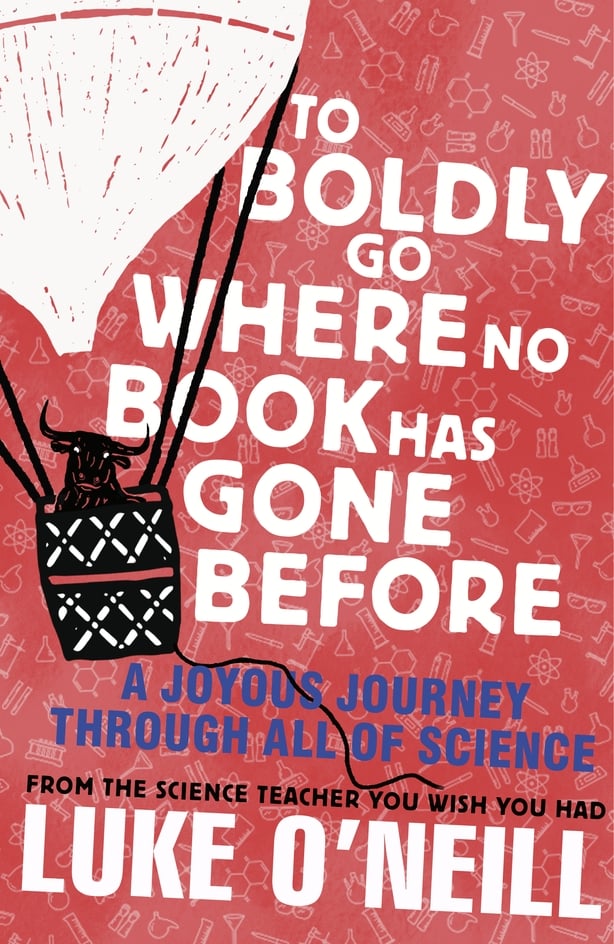Culture Chats: The cover of Professor Luke O'Neill's new book To Boldly Go Where No Book Has Gone Before describes his as 'The science teacher you wish you had' - and we couldn't put it better ourselves.
To Boldly Go Where No Book Has Gone Before is a hugely accessible history of science, exploring the human stories behind the biggest discoveries; it's another winner from the country's favourite scientist.
What inspired this book, tackling a biography of scientists?
Viking Penguin asked me to write a new history of science - bit of a tall order but I took on the challenge! As I wrote it it became a series of biographies which I hope is an interesting way to convey the breakthroughs that have happened. I came across all kinds of interesting quirky stories about the lives of the scientists- the best reality TV show ever!
You weathered an onslaught of online harassment amid the Covid-19 pandemic and the vaccine roll-out, not least actual death threats. Is there a science behind conspiracy theories and how they work on the mind?
There is indeed. A major reason is fear- people react to an unpredictable stressful situation by being drawn to conspiracy theories, finding comfort in a group that they then can't back out of, and attacking experts who for various reasons they don’t trust. A bit like shooting the messenger.
Who is one lesser-known Irish scientist that we should know more about?
Percy Ludgate was a Dublin accountant who was interested in computers very early on. He gets the credit with writing what is called the first subroutine, an important aspect of computer programming.
We need your consent to load this rte-player contentWe use rte-player to manage extra content that can set cookies on your device and collect data about your activity. Please review their details and accept them to load the content.Manage Preferences
Listen: Jennifer Zamparelli talks to Professor Luke O'Neill
This book celebrates and examines the triumphs of human endeavours in science, how we have brought humanity to previously unknown concepts. What is your take on the role AI could play in future discoveries, and playing a larger role in our every day lives in general?
AI is a fantastic development. It will speed up discoveries because it can analyse huge amounts of data from experiments and also make predictions that can be tested experimentally. For our lives in general it’s hard to know but it’s a great way to find the top 5 restaurants in a city you’re visiting! Like all new technologies though, we need to keep an eye on it.

best popular non-fiction book for Never Mind the B*ll*cks, Here's the Science
You mention Florence Nightingale in the book, a figure we wouldn’t always think of as being a scientist. Are you challenging our perception of what makes someone a scientist, and how important is a disruptive spirit to that?
I hope so. Scientists are human beings like everyone else with the same hopes, fears, jealousies, rivalries and ambitions. I describe a lot of that in the book. Everyone is actually a scientist as we navigate our lives, assessing the particular situation we’re in and coming to a conclusion. Science is all about being curious, finding things out and coming to a decision on something based on the data. Florence did exactly that when she found that 42% of soldiers were actually dying of infections rather than in battle. Her introduction of hygiene ('wash your hands!’) and good nursing practises led to the death rate falling to 4% and she proved it all statistically, attacking the establishment in the process who didn’t believe her, so a real hero.
We need your consent to load this rte-player contentWe use rte-player to manage extra content that can set cookies on your device and collect data about your activity. Please review their details and accept them to load the content.Manage Preferences
Listen: Brendan O'Connor talks to Professor Luke O'Neill
After a summer where Cillian Murphy’s portrayal of J Robert Oppenheimer captivated audiences and critics, are we in an age of the rock star scientist?
Without doubt! What a fantastic movie. I hope we see more movies like it. And never forget, Queen’s Brian May is a famous astronomer.
That film explored, among other concepts, the tortured genius or burdened mind. Having delved into the lives of other scientists, what are your thoughts on the trope of the tortured genius in our culture and how we think of certain figures in history?
That’s me alright, a tortured genius! I think it’s more a case of scientists just wanting to figure something out but it’s a struggle with setbacks, false leads and often opposition against the orthodoxy. So even though they might seem tortured it’s probably more to do with a passion to find something out and do good work.

To Boldly Go Where No Book Has Gone Before by Luke O'Neill is published by Viking. O'Neill's children's book Show Me The Science is published by Gill Books and is also out now.


